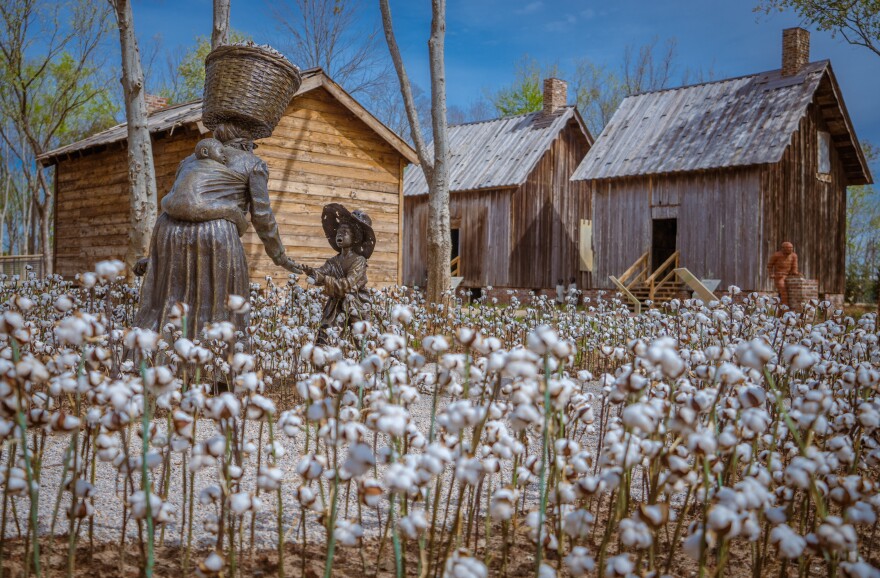A Montgomery nonprofit is observing Juneteenth by shining a light on the history and impact of slavery in Alabama. Juneteenth is a holiday that celebrates when enslaved Black people from Galveston, TX, were told they were free. The holiday is celebrated every June 19.

The Equal Justice Initiative (EJI)’s newest park, Freedom Monument Sculpture Park, is a park that highlights slavery in America. EJI is a nonprofit group working to end mass incarceration and excessive punishment in the United States. The organization also provides legal representation to those who have been unlawfully convicted, unfairly sentenced, or abused in state jails or prisons.
The Juneteenth dedication at Freedom Monument Sculpture Park on June 19 will feature musical performances from Wynton Marsalis, New York Philharmonic clarinetist Anthony McGill and the Jason Max Ferdinand Singers.

Admission to the event and all Legacy Sites including Freedom Sculpture Monument Park, Legacy Museum and National Monument for Peace and Justice will all be free.
The park explores the legacy of slavery and the impact slavery has had in America. Bryan Stevenson, the EJI executive director, spoke to APR in March when the park first opened. He said Alabama played a greater role in the history of slavery than some know.
“Alabama was a critical space around the history of slavery. The slave population of Alabama grew from 40,000 people in 1820 to 400,000 by 1860. We had one of the largest populations of enslaved people in the country,” Stevenson said. “I think, nationally, we haven't done a great job of presenting the history of slavery in a way that focuses on the lives of enslaved people.”
Stevenson explained some spaces available to the public that commemorate slavery do not properly address the perspective of those who were enslaved. He said the new park in Montgomery uses art to showcase the history of enslaved people in Alabama.
“There are plantations and cultural spaces that don't really address the perspective of enslaved people. Freedom Monument Sculpture Park hopes to change that. We use art, sculpture and narrative to present the history, beginning with the plight of Indigenous peoples in the state of Alabama, through the trafficking of African people into the domestic era and throughout the 19th Century until emancipation,” he explained.

According to Stevenson, many plantations in Alabama were located on or near the Alabama River and railways for easy cotton exportation. This led to Freedom Monument Sculpture Park being built near the Alabama River and near railways. Stevenson said the location of the park also plays a significant role in visitor’s experience.
“We think that's important [is] when you're trying to understand history, to be able to stand somewhere where that history can be felt, can be seen, can be experienced. I think is really important. So, our site is on the banks of the river,” he said. “You can access the site by boat, and to have an immersive experience, you'll hear the rail cars that are still passing on those rail lines that were carved and created by enslaved people. We think that makes the experience of visiting the space more dynamic, more meaningful [and] more memorable,” he said.

One stand out piece featured in the park is the Wall of Death Masks. The display honors the 10 million people who were enslaved in America. The goal Stevenson and the EJI have with Freedom Monument Sculpture Park is to display the brutality of slavery to ensure it never happens again.
“With a deeper understanding, we're just better prepared to meet the challenges created by the lingering issues that continue. And my hope is that we can all commit to the kind of community where we never again tolerate the sort of bondage and brutality that slavery represented; that we never again tolerate the bigotry and racial violence that slavery created,” Stevenson explained.
More information about the EJI, the Juneteenth dedication and Legacy Sites can be found here.

